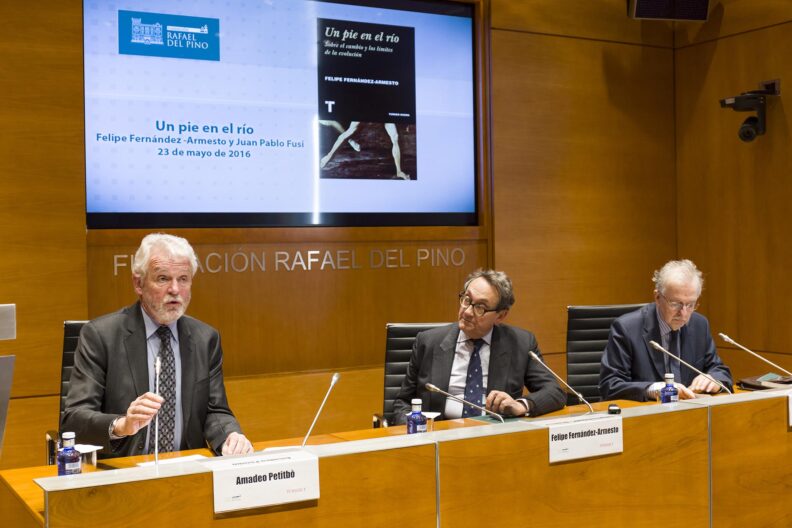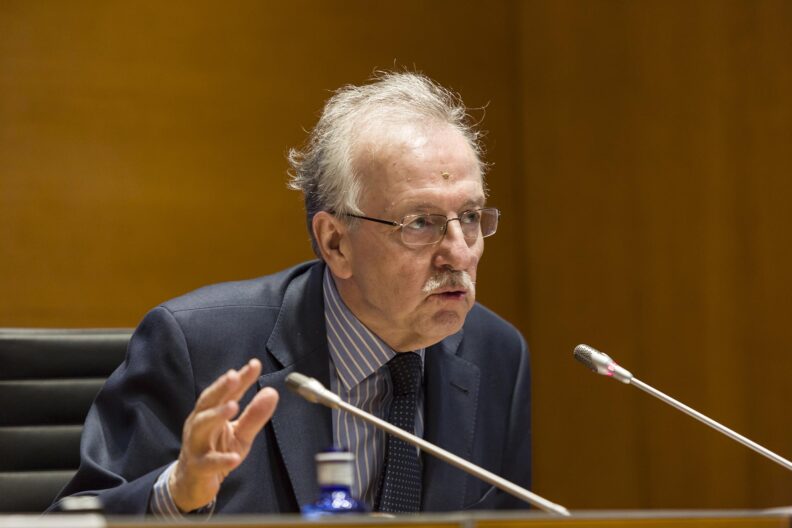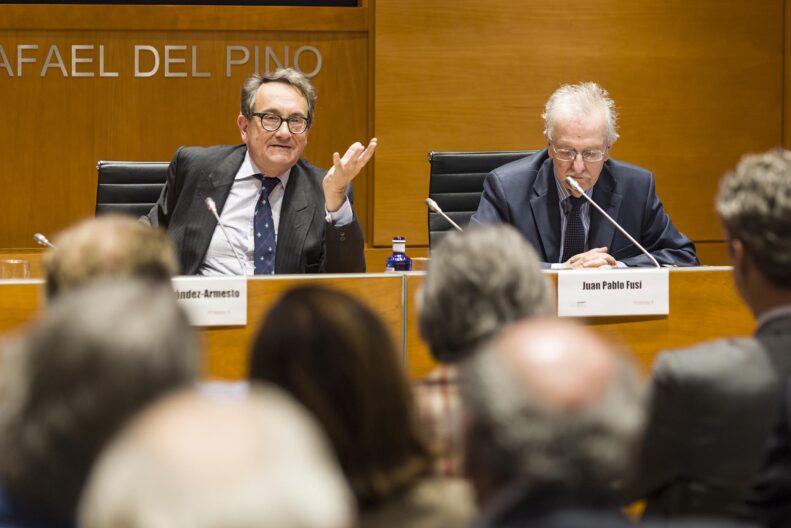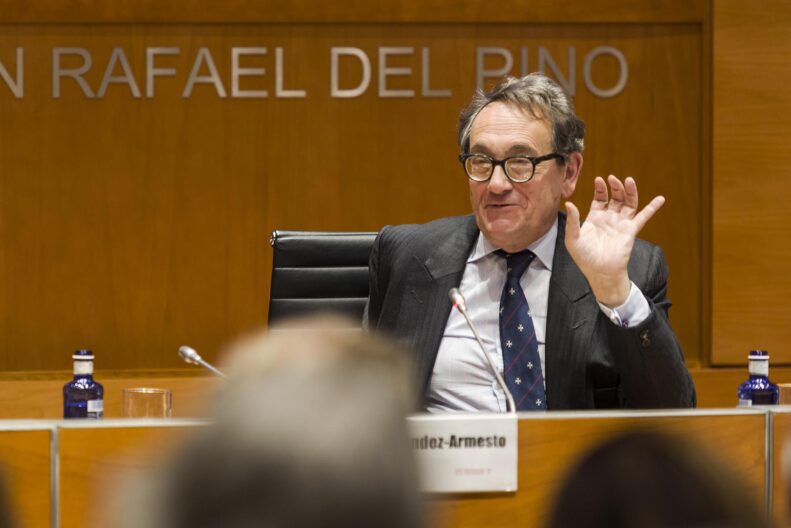Felipe Fernández-Armesto and Juan Pablo Fusi
Summary:
On the occasion of the presentation of the book "Un píe en el río. On change and the limits of evolution", by historian Felipe Fernández-Armesto, the Rafael del Pino Foundation organised a dialogue between the author and Juan Pablo Fusi on 23 May 2016. The first to speak was Juan Pablo Fusi, Professor of Contemporary History at the Complutense University of Madrid, who pointed out that the title of the book comes from Heraclitus, who said that every time we set foot in a river, the river is always different because the water flows. With this image, the classical Greek historian wanted to express the idea of evolution. Fusi gave a sketch of Fernández-Armesto's work and his ideas, above all of man and his relationship with nature as the fundamental theme of his work. In this respect, he highlighted the four fundamental aspects that characterise him: a non-Eurocentric, but rather a multicultural perspective; placing cultural exchange as the driving force of historical change; the recognition of the existence of moral and cultural beings other than man; and philosophical concerns about why man changes. In the book, Fusi said, the author asks why cultures are different and change over the centuries. To explain this, Fusi quoted two sentences from the text: "history is not an extension of biology", that is, it does not happen because of biological changes or genetics, and "imagination is the engine of culture". The key lies in culture, because what defines man is not his capacity to adapt to the environment or his evolution as a species, but his enormous capacity for anticipation, because he lacks many things to be able to control nature. For his part, Felipe Fernández-Armesto, professor of Modern History at the University of Notre Dame (USA), indicated that the book is based on two points: what distinguishes man from apes is having a wide range of cultures and the recognition that chimpanzees are cultural animals in the sense that they have learned behaviours, in addition to instinctive ones. Human culture, however, surpasses that of any animal group, for example, political culture. In the past, the alpha male, in both animals and humans, dominated and led the group. But from then on, humans developed new political cultures while animals continued with the initial one. The origin of this difference between animals and humans is imagination. Our evolution is a product of imagination because we see the world, we imagine it differently and we work to change it. This imagination is made up of two faculties. The first is memory, and human memory is very false, it deceives us because we adapt our memories of what happened. That leads to a deep and fertile imagination, because it is a way of seeing what is not there. The other ingredient is anticipation. And imagination is the product of the union of those two faculties. Another thing that distinguishes us from chimpanzees is that we inhabit relatively large groups, and memory is an effect of the size of our societies, because the larger they are, the more our memory tends to be fallacious, to adapt memories.
The Rafael del Pino Foundation is not responsible for the comments, opinions or statements made by the people who participate in its activities and which are expressed as a result of their inalienable right to freedom of expression and under their sole responsibility. The contents included in the summary of this conference are the result of the debates held at the meeting held for this purpose at the Foundation and are the responsibility of their authors.
The Rafael del Pino Foundation is not responsible for any comments, opinions or statements made by third parties. In this respect, the FRP is not obliged to monitor the views expressed by such third parties who participate in its activities and which are expressed as a result of their inalienable right to freedom of expression and under their own responsibility. The contents included in the summary of this conference are the result of the discussions that took place during the conference organised for this purpose at the Foundation and are the sole responsibility of its authors.







